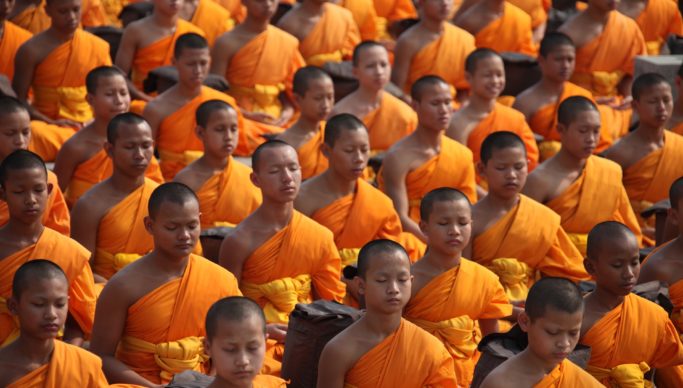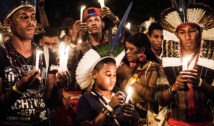
Thailand Embraces ‘Socially Engaged Buddhism’ to Pursue Justice Beyond Meditation
- By Derek Welch --
- 29 Jul 2023 --
A group of socially aware Buddhists in Thailand is questioning traditional notions of personal devotion to address urgent issues within their faith and extend their impact beyond the Southeast Asian nation.
Of late, it has proved to be a commercial boon for Bangkok, pulling Westerners to the city’s numerous meditation centers and temples.
This has raised concerns among many Thais who feel that the faith, renowned for fostering inner peace in its followers, may not adequately address the suffering experienced by those in their surroundings, according to an article by Kapla Jain published on Religion News Service.
Perhaps the most prominent of those expressing this concern is Sulak Sivaraksa, a monk who was ordained by Thнch Nhất Hạnh, the renowned Vietnamese Zen master who died at 95 in 2022. During the Vietnam War, Hanh introduced the idea of “engaged Buddhism” to refer to the expanding religious practice to monks actively alleviating the hardships imposed on the Vietnamese people.
Born in 1933, Sivaraksa is the founder of the International Network of Engaged Buddhists (INEB), whose mission is to blend spiritual practice with social initiatives to foster a world that is environmentally sustainable, equitable, and harmonious. Established in Thailand in 1989, the network encompasses individuals and organizations from over 30 countries across six continents.
According to Sivaraksa, Buddhism must transcend individual practice to further societal transformation. “Only meditating—that’s not Buddhism,” he told reporters visiting INEB’s Bangkok office recently. “It’s escapism.”
Thailand’s “engaged Buddhism” movement is also gaining momentum in response to recent religious strife, Jain reports in the article. Particularly in the country’s southern region, home to a substantial Muslim population, religious violence has erupted, fueled by ultranationalist monks disseminating messages of hatred.
Suchart Setthamalinee, Thailand’s national human rights commissioner, has noted that misinformation promoting fear of Muslim dominance in the nation is being propagated through temples. In response, there have been instances of “Protect Buddhism” groups emerging in certain areas.
Socially engaged Buddhists are also actively tackling social justice concerns within the faith. In some northern Thai temples, signs restrict women from entering the ordination hall area during menstruation, and the inclusion of Bhikuni (female monks) in the order is not widely accepted.
Of late, INEB has been actively advocating for transgender rights and pushing for the ordination of women within the Buddhist context. In addition to these efforts, the organization has engaged in constructing environmentally friendly temples and raising awareness about the pressing problem of forest degradation in Thailand.
The issue is significant not only from an environmental standpoint but also from a human rights perspective, as it has led to the displacement of forest-dependent communities from their lands.
INEB’s notable influence stems from a ritual known as “tree ordination,” which revolves around symbolically protecting trees from logging by wrapping them with the saffron robes traditionally worn by Theravada monks.
Depending on the community they are collaborating with, socially engaged Buddhists may incorporate symbols from other religions, such as a Christian cross, to reinforce the significance of the practice.



















